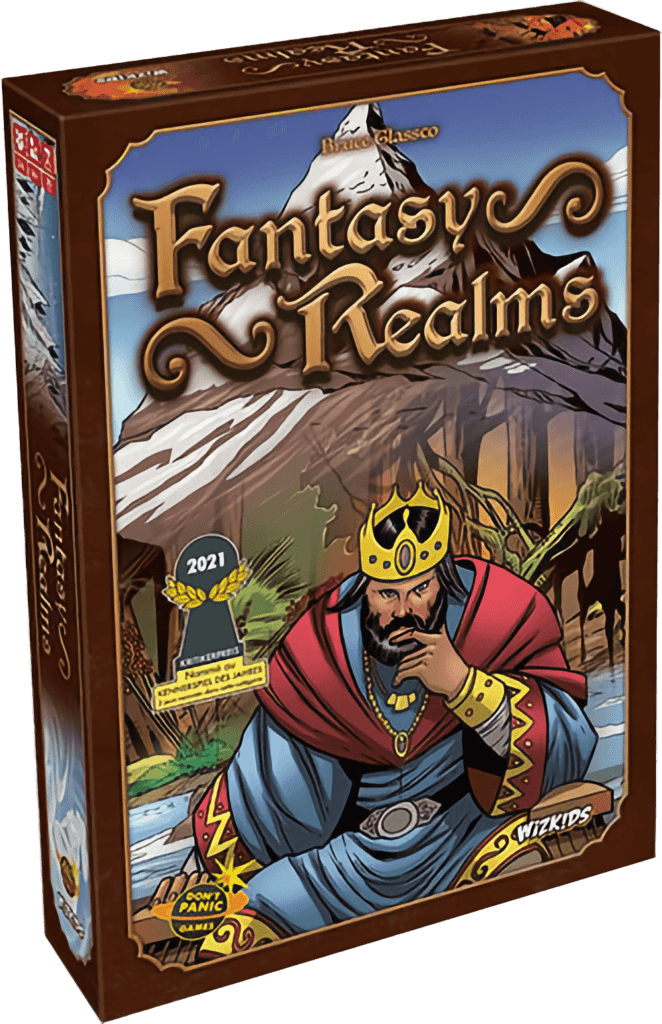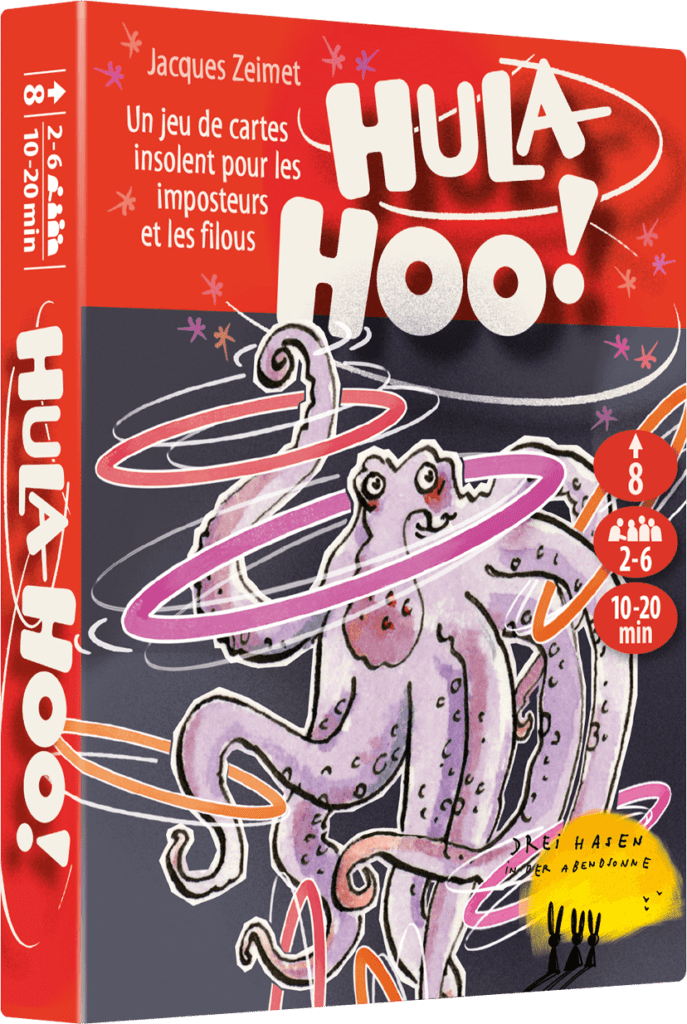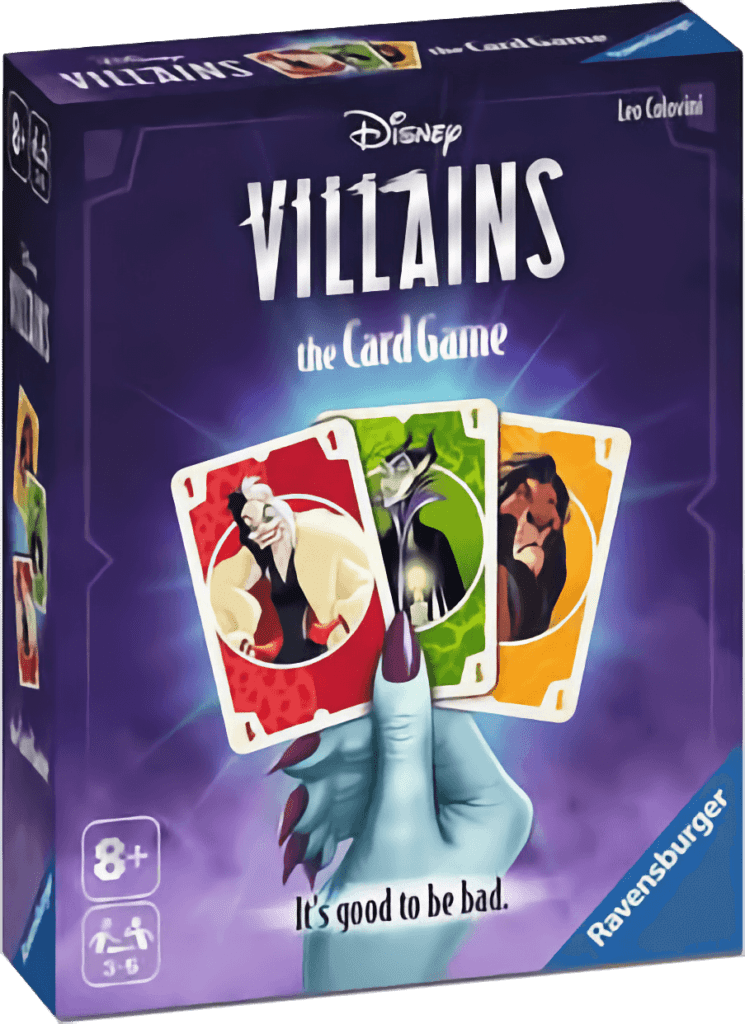Easy to transport, inexpensive, with simple rules and quick games: discover our selection of the best card games of the moment.
Card games, everyone, or almost, loves it. Simple rules, fast games, small boxes to take everywhere… they are not lacking in advantages.
But maybe you’re a bit fed up with playing the same thing all the time? Belote, One, Poker, Tarot, etc. After dozens of games, you can legitimately get tired of it.
Luckily, here is a selection of small card games to use without moderation, tested and approved by us.
Cabo: smarter than it looks
Cabo is inspired by Golfa traditional game, sometimes also called polish poker.
You receive four cards at the start of the game, placed face down in front of you, and you look at two of them secretly. When it is your turn, you choose an action from:
- look at the top card of the draw pile, then discard it or exchange it for one or more of our cards that we think are of the same value (if we are wrong, we keep them all);
- exchange the top card of the discard pile for one or more of our cards of the same value;
- pass his turn and end the round. Everyone then turns over their cards and adds up their values. If the player who ended the round has the lowest total, he scores 0 points. Otherwise, he scores the sum of his cards with a penalty of 10 points. All others mark the sum of their cards.
The rounds are thus accumulated, until a player exceeds 100 points, and the lowest score wins. Without going into details, a few points of additional rules further enhance the interest of the parties.
Cabo is a much smarter little game than it first appears. Obviously, chance has an important part in the course of the game. But memory is also put to use, and even with only four cards in front of you, you quickly get tangled up.
We bluff, we take risks, we cross our fingers to get the right card… tricks and rounds follow one another in this little game that is really very pleasant to play. Plus, the illustrations are cute as hell.
- Cabo is a game by Melissa Limes and Mandy Henning
- Illustrated by Agus Muqith
- Edited by Origames
- For 2 to 5 players from 8 years old
- For games of about 20 minutes
- Priced at €11.90 at Philibert
Fantasy Realms: the nugget

The game begins with seven cards in hand. In turn, we just draw one (blindly from the heap, or knowingly from the discard pile), then discard one.
All cards are unique. They are characterized by a name, a strength, a family (creature, artefact, lord, land, etc.), a bonus or a penalty. These depend on or influence the other cards. For example, the king grants a bonus of 5 to all your armies, and 20 if you also have the queen.
The game ends as soon as the discard pile contains ten cards. Each player then reveals the cards in his hand, and counts his points, adding their strength, and applying their bonus or malus. Highest score wins.
You risk playing your first game at random, with this unpleasant impression of not understanding much about what you are doing and what to do. Until the countdown. And there, the click: Fantasy Realms is a nugget!
Despite a very simple rule, this is the most difficult game to tackle in our selection. Also the richest. Bluff, procrastination, risk-taking, combos, and, despite everything, a significant dose of chance, Fantasy Realms is a concentrate of playful mechanics in about fifty cards.
With its minimalist rules, which nevertheless hide an unsuspected depth, and its fast and fluid games, the experience of Fantasy Realms quickly becomes addictive, and we chain the games, without getting tired, and without feeling of redundancy, always taking pleasure in trying new combinations of cards.
- Fantasy Realms is a game by Bruce Glassco
- Published by Don’t Panic Games
- For 2 to 6 players from 14 years old
- For games of about 20 minutes
- Priced at €22.90 at Philibert
Hula Hoo: for the good atmosphere

In hula hoo, you have to eliminate the other players, or get rid of all your cards. We receive ten at the start of the game: five placed face up in front of us, five others face down in hand.
A trick simply consists of playing a card, and indicating “Over” or “Under”, forcing the next player to play a card of higher or lower value than yours. If he cannot, either among the cards in front of him or among those in his hand, he is eliminated.
The game obviously offers some subtleties. 7s are jokers, and can always be played. It is also possible to make a “double”, by placing a card having the same value as the previous one. Following a double, another double must be played, or else a card whose value is strictly one more or one less.
The winner of the round scores as many points as cards played, and it takes 77 to win.
hula hoo is the typical example of a little card game, which everyone can play, with extremely simple rules, but with extremely effective games. It plays fast, it’s bedroom, it squeals, it laughs, we move on to the next one, etc.
The random part is of course important, but it doesn’t matter, we’re here to have fun, not to develop big strategies. We can still reflect a little on the card to be played, by analyzing those of others, those that have already been played, etc. It’s not just a coincidence either.
In short, a worthy successor to the Onewith an assured atmosphere around the table.
- hula hoo is a game by Jacques Zeimet
- Illustrated by Melanie Garanin
- Edited by Iello
- For 2 to 6 players from 8 years old
- For games of about 20 minutes
- Priced at €9.90 at Philibert
Skull King: for strategists

We couldn’t decently offer you a selection worthy of the name without including a set of tricks. Skull Kingvariant ofElevatorplays this role brilliantly.
As usual in this type of game, there are several suits of cards, one of which is trump. You have to play the requested color if possible, a trump wins over the others, etc. But Skull King also offers several welcome originalities.
In addition to additional cards (pirates, their king, mermaids, etc.), its main characteristic is to last ten rounds, and in each one we play as many tricks as the current round. In the first round, everyone receives a single card, and a trick is played. Two in the second, etc., until the last round where ten cards are dealt and ten tricks are played.
But, above all, at the start of each round, after receiving your cards, you estimate how many tricks you think you’ll make. And the points scored depend on whether or not this estimate is respected.
If you’re tired of endless Tarot Where belotte, Skull King should clearly reconcile you to the games of folds.
Under its appearance of a simple little game, it hides a good dose of strategy, risk-taking, estimation, and bluffing. There were many reversals of the situation, and the tension rose with the heats.
Its original mechanics pleasantly renew the classics of the genre, and as often in this type of game, we play several games by counting the points to determine the big winner of the evening.
- Skull King is a game by Brent, Tauni and Jeff Beck
- Illustrated by Apryl Scott
- Published by Grandpa Beck’s Games
- For 2 to 8 players from 8 years old
- For games of about 30 minutes
- Priced at €14.90 at Philibert
Villains: to wreak havoc

Everyone has their own deck, placed face down in front of them, with one card turned up in their discard pile at the start of the game, and four others in their hand.
In turn, you must play a card from your hand, the color or value of which preferably matches that of your discard pile. But be careful, if it also matches the card of one of our neighbours, we have to play it at home, whether we like it or not.
In any case, you can, if you wish, play it face down, to start again with any other card in the next turn.
The game ends when all the cards have been placed. The number of face down cards in our stack cancels our other cards of the corresponding value. For example, if I have 4 cards face down, all my 4 value cards are canceled. The score is the sum of all remaining ones, and the highest total wins.
Villains, under its air of a cute little game, hides a devious and frustrating game. Frustrating when we have to play a big card with a neighbor, even more frustrating when he comes to wreak havoc in our pile.
And despite the element of chance, a good memory helps to make a better score, to remember the number of cards face down, and to estimate if our blow is worth it or if the card risks being eliminated at the end.
A simple and clever game, which will appeal to both adults and children, despite what its illustrations suggest.
- Villains is a game by Leo Colovini
- Illustrated by Blue Kangaroo
- Published by Ravensburger
- For 3 to 6 players from 8 years old
- For games of about 20 minutes
- Priced at €12.95 at Philibert
Some links in this article are affiliate. We’ll explaine everything here.
